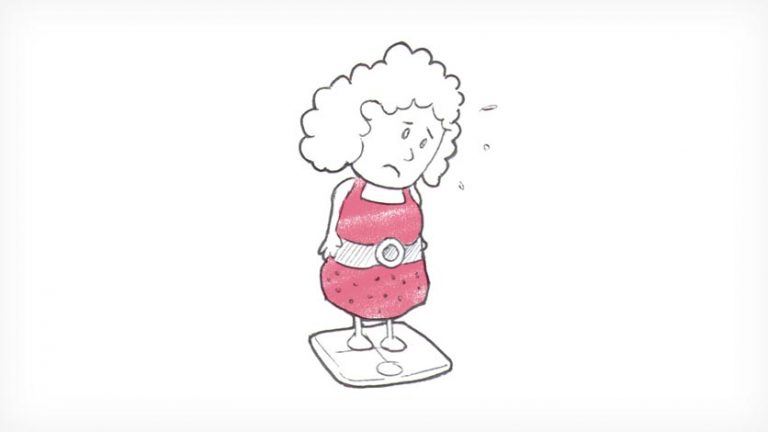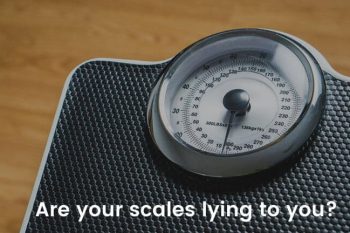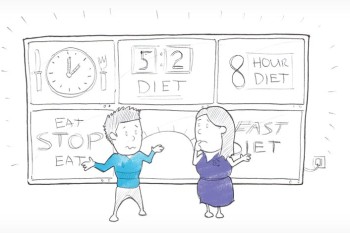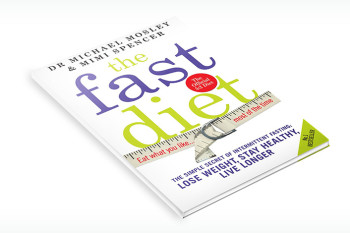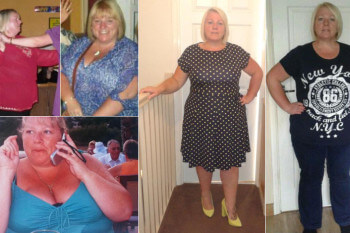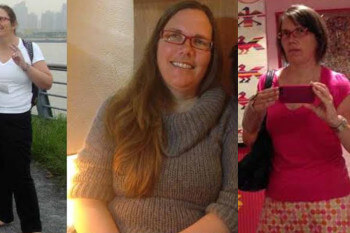Why am I not losing weight?
This is a very common question we are asked. Usually there is a simple explanation.
The most common reason is that you have lost weight but the scales are not yet reflecting your success because of the natural variations in your weight from hour to hour and day to day.
Read why the scales don’t tell the truth
To figure out what is happening, start by answering the following questions:
1. How long have you been following intermittent fasting?
Just started? If you have only just started intermittent fasting it might be that it takes a little while for your body to adapt to the new system. While most FastDay members find an immediate drop in weight on the scales, this early loss is largely due to changes in body water. It may be that you did not lose so much water and so the scales may not show a decrease straight away. Even using the tape measure to measure your waist (we recommend measuring your waist as a more useful way to monitor your health than your weight) may be slow to show a difference depending on where you are losing the fat.
FastDay says: wait at least a month before deciding there is a problem.
Read more about monitoring progress
Been fasting for months and no longer losing weight? If you have been successfully losing weight but seem to have hit a plateau, there are several possibilities:
-
First, if your weight loss is slow (and weight loss with intermittent fasting is fairly slow compared with some other diets), the actual weight lost can become hidden by the large natural variations in weight that everyone experiences every day. Our weight can vary by a kilo (2.2 lbs) or more up or down due to changes in body water and food currently passing through the system. If you have been losing half a kilo a week and then for two weeks appear not to have lost any weight, it could simply be that the loss of fat is being hidden by a kilo’s worth of variation. Again, the tape measure is a better guide than the scales.
-
Second, as you lose weight your body needs less energy to work and so your speed of weight loss will slow down and may plateau. To resume progress you will need to make efforts to use more energy by increasing your activity levels and/or to reduce your calorie intake overall. To see how many calories you are expected to need for your age, weight and height (called your total daily energy expenditure or TDEE), use the FastDay progress tracker.
-
Third, it is easy to let things slip a little and perhaps be less strict about calorie intake on fast days or the length of the fast. This loss of focus is perhaps due to becoming too relaxed, or a little bored with the program or to do with the ways in which our bodies try to limit weight loss in times of famine.
FastDay says: keep calm and wait for a month before deciding you have really plateaued, but in the meantime try counting calories on your non-fast days as well as fast days to check you are not eating more than you think. If you find that you really have stopped losing weight, consider adding another fast day if you are currently doing a 5:2 fasting pattern: upgrade to 4:3 or even ADF.
Read about how our bodies respond to weight loss
Learn more about eating on non-fast days
Learn more about different ways of fasting
2. How much/how quickly do you want to lose?
If you don’t need to lose much more weight, your weight loss will be slower compared with somebody who has a lot to lose. If you are already in the healthy weight range for your height and shape and you were hoping to lose several kilos in just a few weeks you may be disappointed! Intermittent fasting will work for you but it may be slower than you’d like and there will be times when you stop losing completely.
As the amount of fat we are carrying decreases, our bodies try to slow the loss in several ways. Although the scientists are still debating whether our bodies have a preferred ‘set weight’ at which our weight loss efforts stall, in practice many people find this to be the case. If you are already at a healthy weight, it may be worth considering whether you should revise your weight loss target.
Learn about setting a weight loss target
If you still have a lot of weight to lose, perhaps there are medical reasons for your struggles. Conditions such as thyroid problems, polycystic ovary syndrome, fibromyalgia, treatment with corticosteroid drugs are known to make weight loss difficult.
Read more about fasting with medical conditions
FastDay says: think about how much weight you need to lose to improve your health rather than setting yourself a hard-to-reach target; accept that weight loss may be very slow but as intermittent fasting is a Way of Eating for life, it doesn’t matter how long it takes. Consider whether you could change your way of fasting by increasing from 5:2 to 4:3 or even ADF (or if you use an eating window fasting method, shorten your eating window). You may think about making other changes to your Way of Eating, such as restricting carbohydrate intake. Don’t make changes that you won’t be able to stick to though. It is better to lose less weight than you’d like than to make changes that you can’t sustain and end up regaining the lost weight.
Learn more about different ways of fasting
3. Are you eating too much when you’re not fasting? What are you eating?
Could you be over-eating on your non-fast days (or during your eating window)? If you have lost a fair amount of weight already, you will need less food to sustain your body and so you need to reduce how much you eat on the non-fast days in line with your new energy requirements (TDEE). Fasting tends to reduce our appetites on the non-fast days, but some days we are hungrier than others. Perhaps the hungry days are coming too often? Some people find that adding an extra fast day or extending the length of the fasting period can be enough to bring appetite back under control.
Read more about dealing with hunger
Learn about how much you should eat on non-fast days
If you have insulin resistance you may be particularly sensitive to carbohydrates in your diet, particularly sugar and refined carbohydrates, such as white flour, white pasta and white rice. Carbohydrates stimulate our bodies to release insulin which prevents us from burning our fat stores. Many of our FastDay forum members have found that reducing their carbohydrate intake has helped with weight loss. It is not necessary to go on an extreme low carbohydrate diet, but avoiding carbohydrates on fast days and reducing carbohydrate intake on non-fast days can make a difference.
Finally, a word about alcohol. Some people find drinking alcohol can slow weight loss. Alcohol can increase your appetite on non-fast days. It can also make fast days tricky. This is because alcohol affects the way your body handles carbohydrates, in particular in the liver. If you think you might be drinking a little too much, consider cutting down your alcohol intake on some days, particularly the day before a fast.
Learn more about fasting and fat burning
FastDay says: attention to your Way of Eating when not fasting may be enough to break the plateau.

